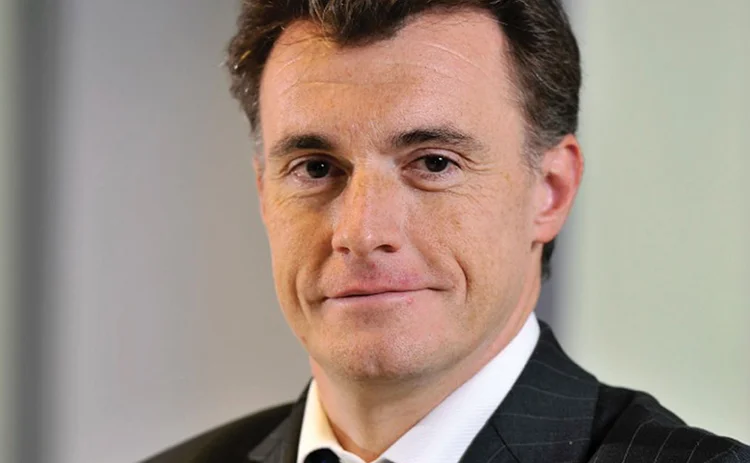
Retail structurer of the year: BNP Paribas
Educating Europe’s investors on the benefits of diversification has served the bank well

Structured Products Europe Awards 2016
Much has been made of the 'Japanification' of European markets in the post-crisis years – the toxic combination of long-term low rates, deflation and little or no growth, which renders policymakers immobile and spells vanishing returns from traditional investments for retail punters.
Nowhere is the comparison more obvious than the structured products markets; Japan's army of retail investors – the archetypical Mrs Watanabes – have grown dissatisfied at the miserly returns on offer from traditionally low-risk, short-dated equity Uridashi, and broadened their horizons to hybrid offerings and longer-dated plays. This year, European investors – most obviously the traditionally conservative French and Italian markets, where investors have historically favoured full capital protection – have had to do the same. BNP Paribas has done more to get the retail investing public used to the idea than most.
Renaud Meary, global head of equity derivatives distribution sales at BNP in Paris, and previously the bank's head of structured equity for Asia-Pacific, has brought several lessons back with him to BNP's traditionally conservative home turf – namely, that it is possible to offer a decent return from structured products in a moribund macro environment, but that punters need to accept some principal risk.
"This year was challenging for equities businesses, and structured products distribution in particular. Given the macro environment and negative interest rates in Europe, it has become very difficult to structure attractive products with a full guarantee. In markets where people are used to investing in capital-guaranteed products, we've been able to address the situation by encouraging investors to consider extending product maturities, or taking some risk on principal to offer them a pickup," says Meary.
Among landmark offerings to a public starved of conviction and investment ideas this year, the bank created a dedicated Quantitative Investment Strategy team, offering alternative investment strategies in a retail-friendly wrapper. The products' blend of uncorrelated returns, downside protection and a low sensitivity to market volatility has proved a winner this year, replacing many shorter-term flow products traditionally favoured by private banks and distribution clients.
Other issuers in Europe have been more hesitant in offering such strategies to retail punters, leery of tightening standards around index calculation and dissemination handed down from principles set by the International Organization of Securities Commissions (Iosco) and gold-plated by European regulators. BNP has bucked the trend by embracing the higher standards early, says Meary – and has set a marker for the industry.
"For quantitative investment strategies sold to retail investors, we are at the edge of increasing the standards set by the industry; we adhere fully to the Iosco principles. For instance, we make sure all our indexes only rely on public, observable, market data and parameters. To minimise reputational risk and ensure high transparency, we also aim to have all our indexes distributed to retail being computed with an external calculation or verification agent," he says.
The bank continues to set the pace for sustainable and responsible investment (SRI) themes, bolstering its range of environmentally friendly themed indexes by partnering with both FTSE and Solactive on decarbonisation indexes. Though the bank outsources the day-to-day calculation of the indexes to the external providers, it always seeks to keep control of index construction – a move Meary argues gives it an edge over other houses by adding oversight on key issues such as factor and component selection.
"We generally partner with external providers on our SRI index suite, but we retain a strong degree of oversight. We closely monitor the limits in terms of size granted to components of the index with the help of our risk department. We typically impose liquidity thresholds on the components, in due proportion with the notional we aim to distribute and the various possible scenarios we might face in the future. It might weigh on performance in some cases, but it's worth it to ensure greater visibility on liquidity and performance," says Meary.
The pressures of the structured products business in Asia – driven largely by local markets' failure to recover from last summer's China equities rout – have seen several banks exit the business, providing opportunities for BNP to acquire books of products and market-making activities from retreating rivals.
Meary believes there will be similarly rich pickings for the bank in Europe next year, but with the drivers here amplified by Europe's heavy regulatory agenda - namely, the Packaged Retail and Insurance-based Investment Products regime (Priips) and the revised Markets in Financial Instruments Directive (Mifid II) and its accompanying regulation.
"The arrival of Priips and Mifid II will trigger further consolidation. Some firms are already exiting the market. This is likely to present further consolidation opportunities for portfolio transfers, and our experience and track-record is unrivalled in this space," he says.
He references the bank's successful buyout of Royal Bank of Scotland's vast, Europe-heavy retail structured products book, the final integration of which was completed this year.
Not all banks who pull out of structured products will want to give up the funding benefits of structured note issuance though, Meary acknowledges. Here, the bank has been at the forefront of one of 2016's other significant trends: facilitating white-labelling or third-party issuance for other product manufacturers via its own Smart Derivatives platform, which helped it win this year's bank technology provider of the year award.
The offering allows retail manufacturers to keep servicing a hungry public - and allows BNP to pocket a healthy stream of sticky, ancillary revenues.
"Another growing trend is white-labelling for distributors who want to keep selling structured products to clients, but who are struggling doing it in a cost-efficient way, in particular with the heavy regulatory agenda we are facing. The development of our Smart Derivatives platform is a strong factor we can leverage to capture these opportunities. We offer to these distributors a bespoke version of the platform, helping them to optimise the promotion of structured products to their relationship managers and the final clients. It includes the possibility for those who want it to keep the funding, or to white-label the BNP issuance program. We can be very flexible," says Meary.
Only users who have a paid subscription or are part of a corporate subscription are able to print or copy content.
To access these options, along with all other subscription benefits, please contact info@risk.net or view our subscription options here: http://subscriptions.risk.net/subscribe
You are currently unable to print this content. Please contact info@risk.net to find out more.
You are currently unable to copy this content. Please contact info@risk.net to find out more.
Copyright Infopro Digital Limited. All rights reserved.
You may share this content using our article tools. Printing this content is for the sole use of the Authorised User (named subscriber), as outlined in our terms and conditions - https://www.infopro-insight.com/terms-conditions/insight-subscriptions/
If you would like to purchase additional rights please email info@risk.net
Copyright Infopro Digital Limited. All rights reserved.
You may share this content using our article tools. Copying this content is for the sole use of the Authorised User (named subscriber), as outlined in our terms and conditions - https://www.infopro-insight.com/terms-conditions/insight-subscriptions/
If you would like to purchase additional rights please email info@risk.net
More on Awards
Joining the dots: banks leverage tech advancements for the future of regulatory reporting
The continued evolution of regulatory frameworks is creating mounting challenges for capital markets firms in achieving comprehensive and cost-effectiveawa compliance reporting. Regnology discusses how firms are starting to use a synthesis of emerging…
Markets Technology Awards 2024 winners' review
Vendors spy opportunity in demystifying and democratising – opening up markets and methods to new users
Derivatives house of the year: JP Morgan
Risk Awards 2024: Response to regional banking crisis went far beyond First Republic
Risk Awards 2024: The winners
JP Morgan wins derivatives house, lifetime award for El Karoui, Barclays wins rates
Best product for capital markets: Murex
Asia Risk Awards 2023
Technology vendor of the year: Murex
Asia Risk Awards 2023
Best structured products support system: Murex
Asia Risk Awards 2023
Energy Risk Asia Awards 2023: the winners
Winning firms demonstrate resiliency and robust risk management amid testing times
Most read
- Top 10 operational risks for 2024
- Top 10 op risks: third parties stoke cyber risk
- Japanese megabanks shun internal models as FRTB bites








